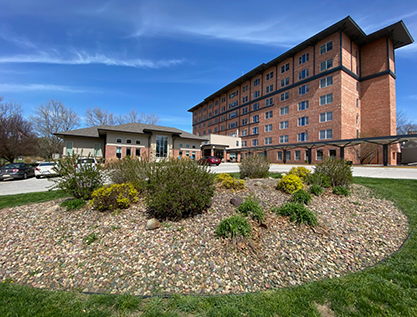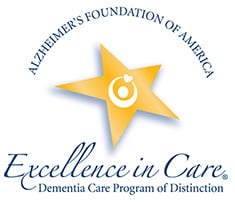A dementia diagnosis can be overwhelming, whether you receive the diagnosis for yourself or a loved one. However, as with any new diagnosis, information gathering is crucial to move forward and concentrate on your quality of life. The more you know about dementia, the more empowered you will feel as you make decisions and search for the best support.
It is possible to maintain quality of life, dignity, and comfort throughout all stages of living with dementia. With early diagnosis, intervention, and treatment, everyone involved — from the adult who is diagnosed to their family members and friends — can get the support they need.
Early Dementia Diagnosis Is Key
Due to increased awareness of signs of normal aging versus cognitive decline, more people are diagnosed with Alzheimer’s disease or other types of dementia earlier in the disease progression. As with any condition, the earlier the diagnosis is made, the sooner interventions can begin.
Meet with a Therapist
Being diagnosed in the early stages of the disease will give people more time to process their emotions with a therapist or counselor. Regular sessions can also help the person cope with their new diagnosis and develop new skills to manage daily life while living with dementia.
Meeting with an occupational or speech therapist can also be helpful throughout every stage of dementia, including the early stages. Therapists can work with the person to create new habits or routines to cope with memory deficits and gain confidence as they continue with social gatherings, homeownership tasks, and personal care.
Prioritize Creating Memories
Now is the time for families and other loved ones to create memories with the person who has been diagnosed. An early diagnosis allows the person to plan meaningful moments with the people they care for the most. Take the bucket-list trip, write down those important stories, and spend extra time with one another.
Focus on Education and Future Plans
An early diagnosis gives the person and their loved ones time to learn about dementia. The Iowa Chapter of the Alzheimer’s Association offers a variety of educational events and support groups for both caregivers and people living with dementia, which can be a positive addition to life post-diagnosis.
An early diagnosis also allows the person to become an active part of their future plans. If you or your loved one have received a diagnosis of early-stage dementia, take the time to get any affairs in order and have frank conversations about future care. These conversations will empower the person and allow their family members to advocate on their behalf when the time comes.
Those Living with Dementia Need to Connect with Others
People living with dementia are at a higher risk of isolating themselves from friends and family members, especially in the early stages of the disease. This happens for various reasons, but the biggest catalysts for social isolation are feeling overwhelmed by large social groups or unable to keep up with conversations.
However, being socially isolated can put someone at a significantly higher risk of rapid cognitive decline. To balance the natural tendency to isolate with the prevention of rapid decline, it’s crucial to find comfortable social situations.
For example, a small gathering of friends in a quiet home might be less overwhelming than meeting the same group in a busy restaurant. It can also be helpful if the person is living in a specialized senior living community dedicated to serving those living with Alzheimer’s disease or other dementias. Residents in our communities enjoy socializing and connecting with others who live in their community, both with and without dementia, in addition to our compassionate team members.
Senior Living and Dementia
Dementia is a progressive disease, meaning there is no cure. However, there are treatment options that can enhance one’s quality of life and decrease the severity of symptoms. When it comes to dementia treatment, focusing on the whole person and their holistic well-being is crucial.
Senior living communities offer the expertise of specially trained caregivers and programs that meet the emotional, cognitive, and spiritual needs of each resident. At WesleyLife Communities for Healthy Living, our memory care team members are trained in best practices for dementia care, including newer, more innovative techniques. This ensures that all of our team members — whether caregiving, dining, or housekeeping — provide personalized care tailored to each residents’ preferences and history.
The WesleyLife Approach to Dementia Care
WesleyLife's approach to dementia services is person-driven, focusing on meeting residents where they are in their journey and allowing that person's wants and needs to define the scope of care.
The institutional model of care does not have a place in our communities. For example, if a resident loves getting up before sunrise to enjoy a cup of black coffee, our caregivers have that coffee waiting as they help the resident get ready for the day. And if that same resident prefers to shower at night rather than in the morning, we make that happen too!
We bend to the needs and preferences of our residents, creating a customized, comfortable experience for those we serve.
Our daily programs and events encourage socialization and enhance well-being. At WesleyLife, you will find a visiting therapy dog in the living room, a group of residents strolling in the courtyard, and people singing their favorite songs in the activity room. It’s a vibrant life here, with plenty of opportunities to relax and recharge.
Find a Community Near You
Memory care and support at WesleyLife is all about resident choice and honoring the history and traditions each resident brings with them. We offer several memory care options, ensuring we can meet the needs of adults living with dementia, no matter what stage they may be living in.
Our team members perform comprehensive assessments to guide adults toward the solution that best meets their current and future needs. Currently, we offer specialized dementia care in our Communities for Healthy Living and in our two Adult Day programs.
Want to see if WesleyLife is the right choice for you or your loved one? Find a WesleyLife Community for Healthy Living near you.





